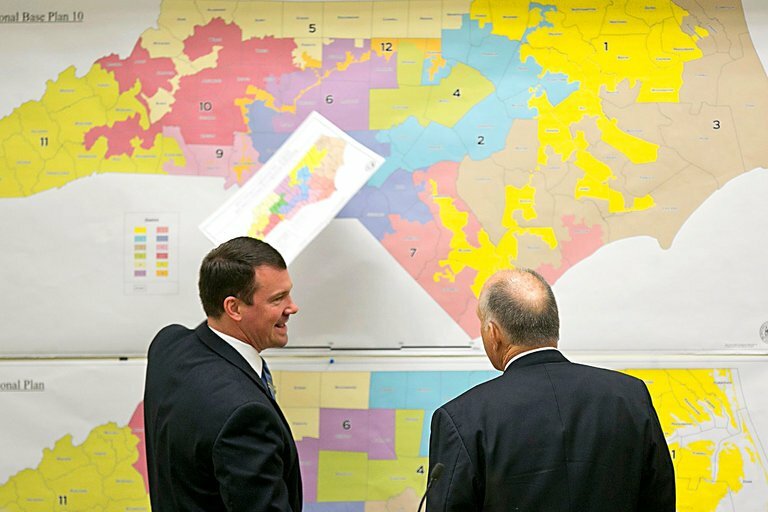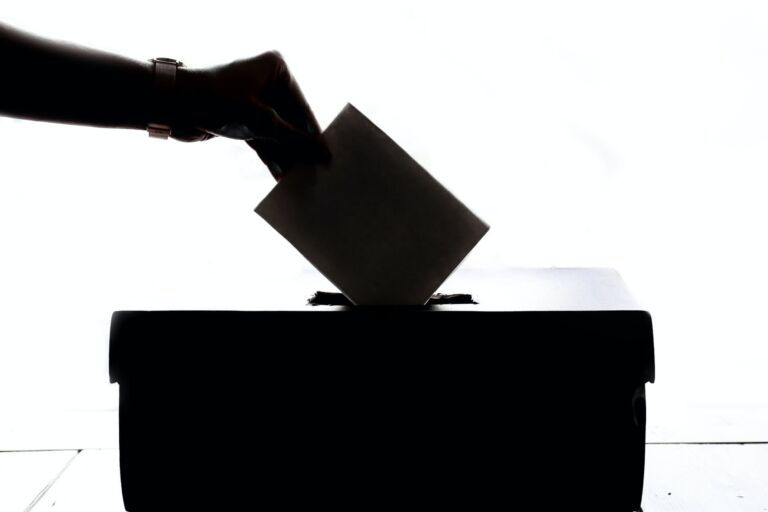- During the 2020 election, early voting observers reported a glaring example of improper voting “assistance”
- Election observers and officials often do not know who is going into the voting booth with voters
- A small change in North Carolina law can enhance the integrity of our elections without unduly burdening voters
When people cast their votes, we presume they are expressing their will. But what if casting a vote expresses the will not of the voter, but of someone “assisting” that voter?
A glaring example of the latter took place during the 2020 election in North Carolina. It exposed the need for election officials and observers to know who is going into the voting booth with voters.
Voter “assistance” gone wrong in Anson County
John Montgomery, the husband of Anson County Register of Deeds candidate Dannie Montgomery, hung out in the parking lot of an early voting site during the 2020 election, meeting voters going in to cast their ballots. Everything would have been fine had he limited his electioneering activities to talking to voters as they went in.
But he did not.
Instead, Mr. Montgomery escorted dozens of them into the polling place and stood by them as they marked their ballots. In at least one instance, Montgomery marked a ballot while the voter stood behind him with his hands in his pocket.
The Anson County Board of Elections issued a verbal warning to the Montgomery campaign about that conduct but failed to do anything to stop it.
Despite her husband’s actions, Ms. Montgomery lost. The public may never have become aware of Mr. Montgomery’s actions except that election observers happened to be on hand to see them and the campaign of Congressman Dan Bishop filed complaints with both the county and state boards of elections.
As the controversy grew, Anson County elections officials insisted that closed-circuit television at the early voting site had not recorded any of Mr. Montgomery’s actions in the voting area. They stuck with this insistence even after a reporter informed them that he had obtained a copy of just such a recording.
Even with observers on hand, however, Mr. Montgomery’s actions might not have been discovered had he been more artful in how he approached and escorted voters to the voting enclosure.
An unknown vulnerability to manipulation
While we know of Mr. Montgomery because of reports from election observers and the bluntness of his actions, most people who assist voters in early voting sites and on election day do so without any record of them doing so.
Under North Carolina law (GS 163-166.8.), there are two conditions under which someone may accompany a voter to assist with casting a ballot. The first one is that any voter may request the assistance of a near relative, such as a spouse, child, or parent.
Voters with certain circumstances that make it difficult to vote on their own may request assistance from any person of the voter’s choice, except for the voter’s employer or someone from the voter’s union. Those circumstances are:
- A voter who, on account of physical disability, is unable to enter the voting booth without assistance.
- A voter who, on account of physical disability, is unable to mark a ballot without assistance.
- A voter who, on account of illiteracy, is unable to mark a ballot without assistance.
- A voter who, on account of blindness, is unable to enter the voting booth or mark a ballot without assistance.
Every early voting site and precinct polling place usually has multiple people voting with the assistance of others. We assume that most of those providing assistance to voters are doing so for legitimate reasons, but we have no way of knowing for sure.
Election officials and observers should know who is going to the voting booth with voters
The good news is that legislators can fill that gap in election data without unduly burdening voters. Election officials should be required to maintain a log with the names and addresses of those who assist voters in their early voting site or election day polling place. While the particular language can be debated, legislators should add something along these lines to GS 163-166.8.:
A person rendering assistance to a voter shall provide his or her name, address, and relationship to the voter to the chief judge or another precinct official designated by the chief judge. That information and the name of the voter being assisted shall be logged by the chief judge or designated official. That log shall be a public record.
To help protect voters from illegal “assistance” more subtle than what we recently saw in Anson County, election officials and observers need to know who is going into the voting booth with voters. A change in the law along the lines suggested here would give them the data they need to help defend the integrity of our elections.


